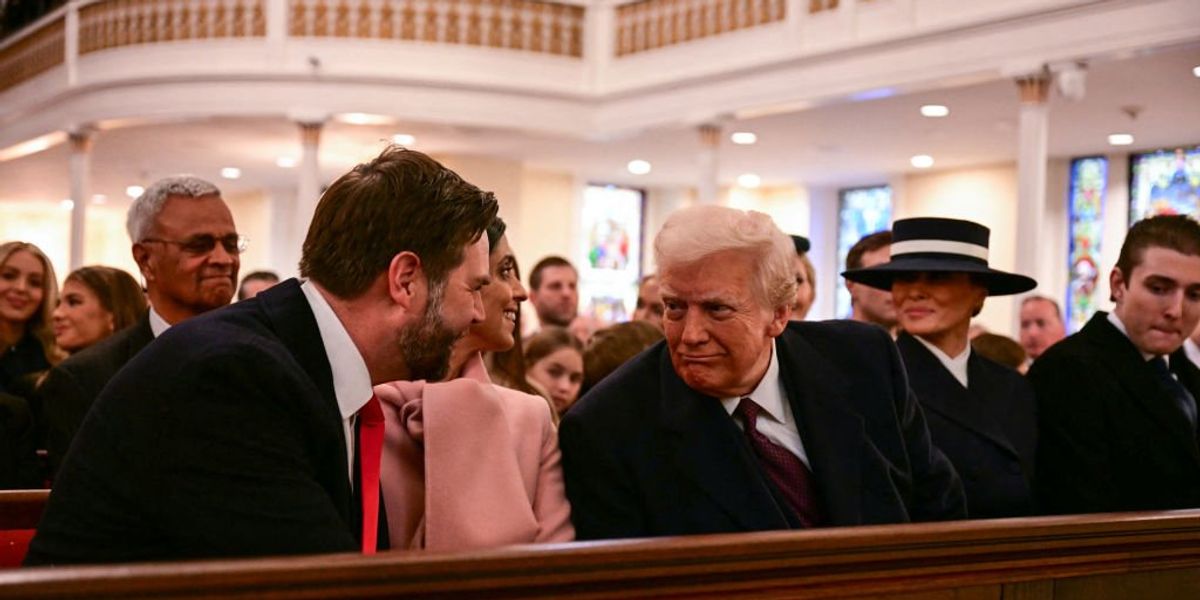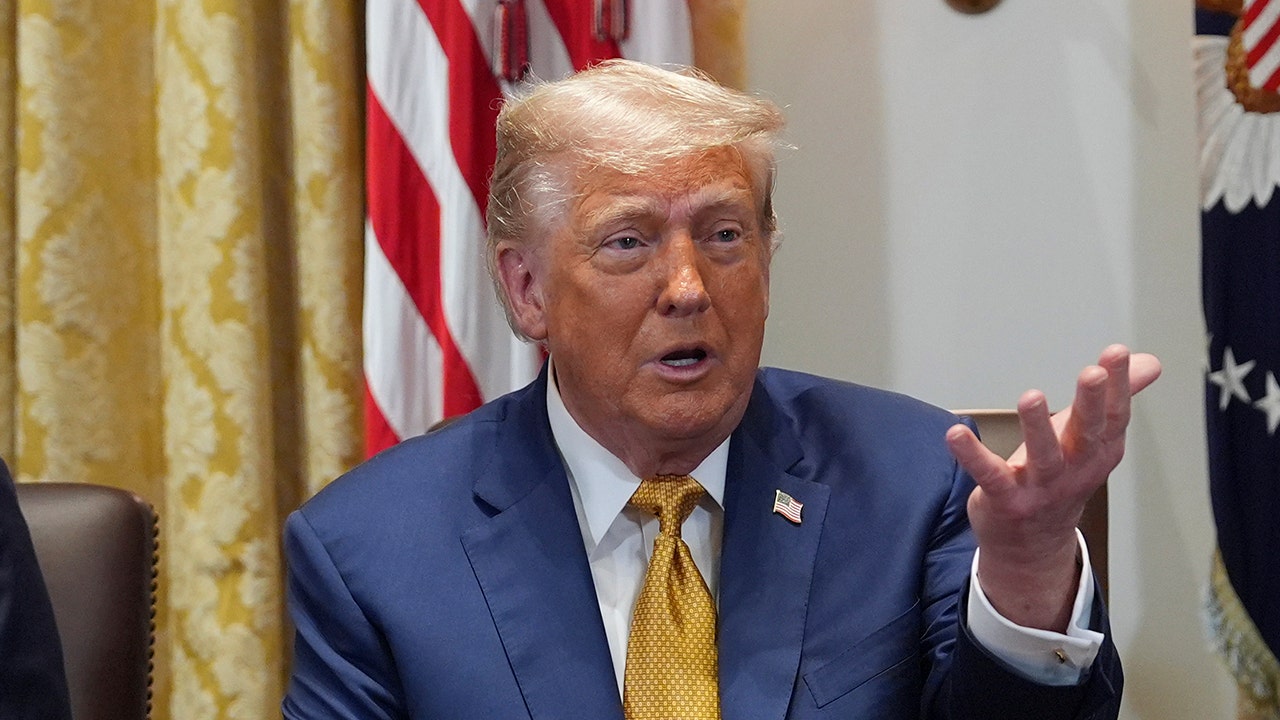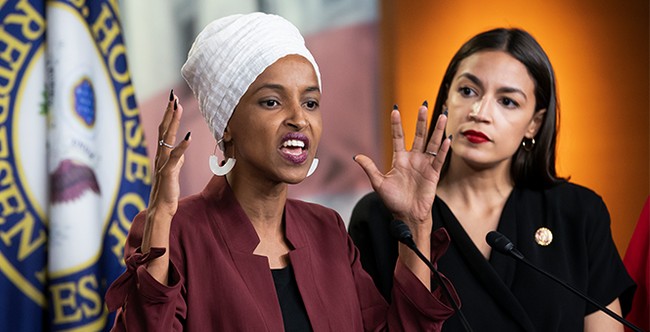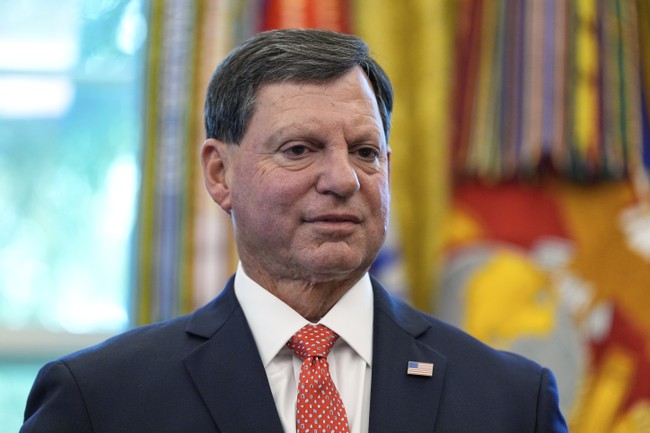Church leaders have long been limited in what they can say to their congregations about political candidates and political matters as a result of an amendment introduced in 1954 by then-Democratic Senator Lyndon Johnson, who was supposedly keen on hamstringing his political opponents.
President Donald Trump, making good on a 2016 campaign promise, took action against the so-called Johnson Amendment in his first term, signing an executive order directing his Treasury Department to effectively halt its enforcement.
“Faith is deeply embedded into the history of our country, the spirit of our founding, and the soul of our nation,” Trump said at the time. “We will not allow people of faith to be targeted, bullied, or silenced anymore.”
Despite numerous attempts, Republicans have been unable in the years since to go the distance and pass legislation repealing the amendment, leaving its enforcement up in the air.
This proved to be an issue for organizations such as Grace Church in St. Louis, Missouri, and New Way Church in Palm Coast, Florida, which were investigated by the IRS during the Biden years for alleged violations of the Johnson Amendment.
The Internal Revenue Service agreed in federal court Monday, however, that church leaders are now free not only to speak to their congregations about electoral politics but to endorse political candidates without worrying about losing their tax-exempt statuses.
The ban
The Internal Revenue Code prohibits churches and other tax-exempt nonprofit organizations “from directly or indirectly participating in, or intervening in, any political campaign on behalf of (or in opposition to) any candidate for elective public office.”
RELATED: Wake-up call: This is what happens when Christians are afraid to offend
Blaze Media Illustration
According to a 2007 IRS publication clarifying how churches could avoid violating the ban and possibly losing tax-exempt status, church leaders can speak for themselves, as individuals, freely on political matters as well as address issues of public policy.
They cannot, however, “make partisan comments in official organization publications or at official functions of the organization.”
‘First Amendment rights don’t end when a pastor, church member, or even a political candidate steps on the platform of a church.’
Progressives have long championed this ban. After all, it serves to attenuate the influence of religious leaders in American politics.
Conservatives, alternatively, have argued that the so-called Johnson Amendment stifles free speech; limits the ability of religious leaders, acting in their official capacities, to become more fully involved in the political process; and creates a legal environment ripe for abuse and biased enforcement.
The win
The National Religious Broadcasters and a pair of Texas-based churches sued the IRS in August, claiming that “churches are placed in a unique and discriminatory status by the IRC” and that the agency “operates in a manner that disfavors conservative organizations and conservative, religious organizations in its enforcement of § 501(c)(3).”
The religious coalition’s complaint — which alleged that the Johnson Amendment violated their First and Fifth Amendment rights as well as the Religious Freedom Restoration Act — stressed that churches should have the same freedom of speech as the hundreds of newspapers organized under § 501(c)(3) that are permitted to openly endorse political candidates.
In a joint court filing intended to settle the lawsuit on Monday, the IRS confirmed that endorsing candidates does not qualify as taking part or intervening in a political campaign.
“When a house of worship in good faith speaks to its congregation, through its customary channels of communication on matters of faith in connection with religious services, concerning electoral politics viewed through the lens of religious faith, it neither ‘participate[s]’ nor ‘intervene[s]’ in a ‘political campaign,’ within the ordinary meaning of those words,” the filing says.
“Bona fide communications internal to a house of worship, between the house of worship and its congregation, in connection with religious services, do neither of those things, any more than does a family discussion concerning candidates,” the filing continues. “Thus, communications from a house of worship to its congregation in connection with religious services through its usual channels of communication on matters of faith do not run afoul of the Johnson Amendment as properly interpreted.”
The agency indicated that this interpretation of the Johnson Amendment is “in keeping with the IRS’s treatment of the Johnson Amendment in practice,” citing Trump’s 2017 executive order.
Blaze News reached out to the White House and to the IRS for comment but did not immediately receive responses.
“First Amendment rights don’t end when a pastor, church member, or even a political candidate steps on the platform of a church,” First Liberty Institute, the legal outfit that represented Grace Church and New Way Church in their battles with the IRS, said in a statement obtained by Blaze News. “The IRS weaponized the Johnson Amendment to silence churches and pastors for decades. This is great news for religious organizations, churches, and religious liberty.”
Lloyd Hitoshi Mayer, a law professor at the University of Notre Dame, told the New York Times that this outcome “basically tells churches of all denominations and sects that you’re free to support candidates from the pulpit.”
“It also says to all candidates and parties, ‘Hey, time to recruit some churches,'” added Mayer.
Like Blaze News? Bypass the censors, sign up for our newsletters, and get stories like this direct to your inbox. Sign up here!
Read the full article here







![Massive Cargo Ship Blaze Rocks Los Angeles Port, Shelter in Place Orders Issued [WATCH] Massive Cargo Ship Blaze Rocks Los Angeles Port, Shelter in Place Orders Issued [WATCH]](https://www.lifezette.com/wp-content/uploads/2025/11/2025.11.22-09.58-lifezette-6921892a7fd51.jpg)



![Antifa Members Officially Plead Guilty to Terror Charges in Texas [WATCH] Antifa Members Officially Plead Guilty to Terror Charges in Texas [WATCH]](https://www.lifezette.com/wp-content/uploads/2025/10/2025.10.09-01.35-lifezette-68e7ba0c8e807.jpg)
